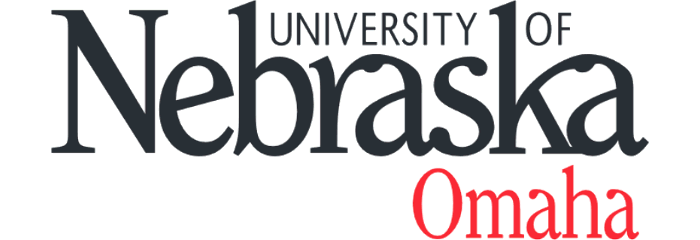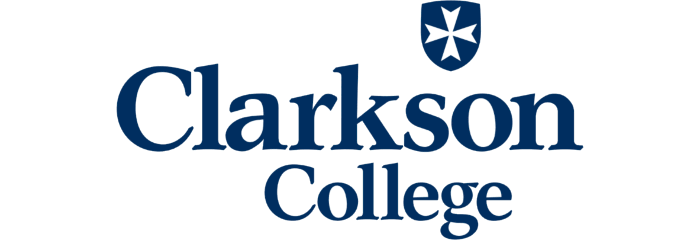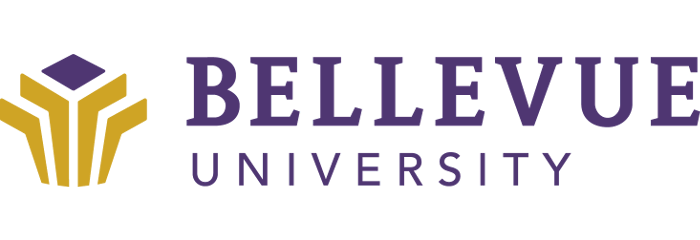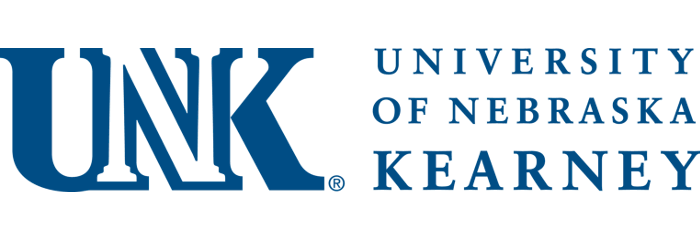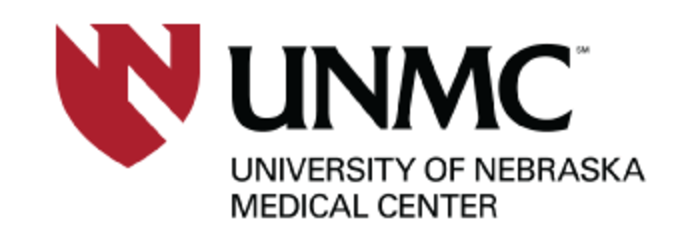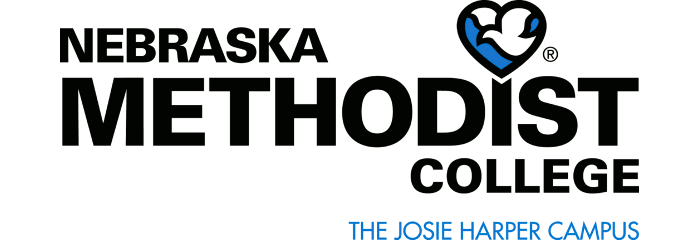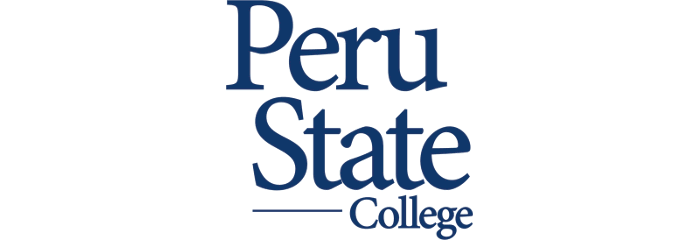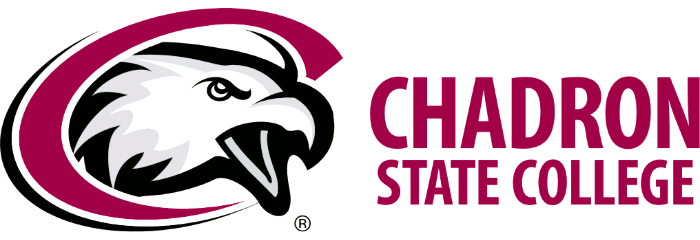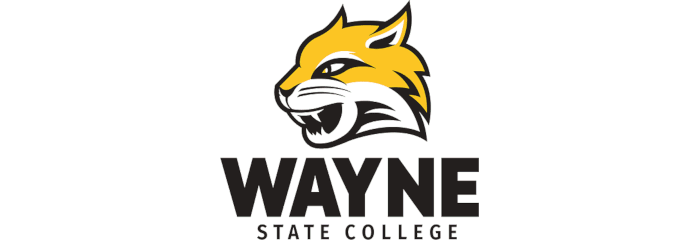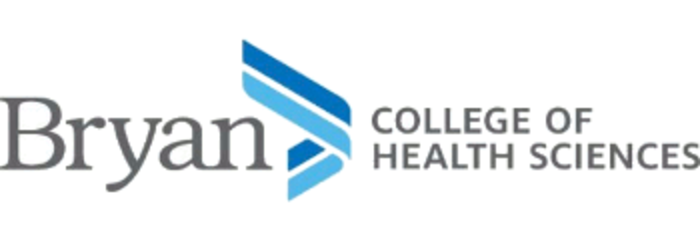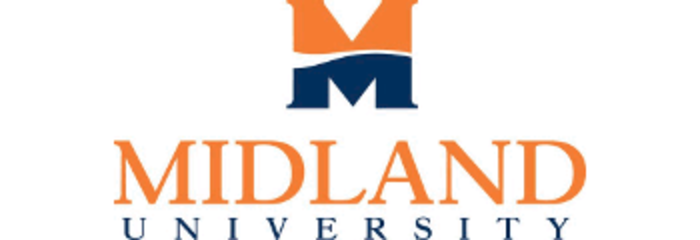Best Online Colleges in Nebraska
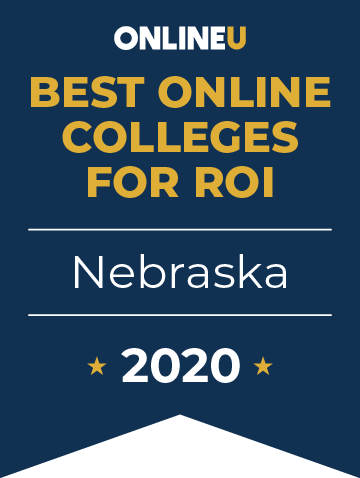
The schools on this list are the best online colleges in Nebraska, according to each school's high alumni salaries and annual tuition rates. Coming in at #1, the University of Nebraska at Omaha offers the second lowest tuition rate, at here, and the cost per credit, which is $285.00, and found here">$8,550 per year, and the highest median alumni salary, at $79,000. Bellevue University, ranked #3, offers more than 180 online bachelor's and master's degrees in a wide variety of subjects.
Alumni salaries were provided by PayScale. View our methodology for more details or learn more about OnlineU.
ON THIS PAGE
Online Schools Accreditation Popular Degrees Cost Financial Aid Careers FAQs| Rank | School | Annual Tuition | Mid-Career Salary |
|---|---|---|---|
| University of Nebraska at Omaha | $8,550 | $79,000 | |
| Clarkson College | $18,976 | $76,200 | |
| Bellevue University | $13,600 | $74,200 | |
| University of Nebraska at Kearney | $7,830 | $70,800 | |
| University of Nebraska Medical Center | $9,960 | $69,400 | |
| Nebraska Methodist College | $9,856 | $66,600 | |
| Peru State College | $8,895 | $65,800 | |
| Chadron State College | $8,895 | $64,300 | |
| Wayne State College | $8,895 | $61,600 | |
| Bryan College of Health Sciences | $17,640 | $61,900 | |
| Midland University | $33,440 | $61,400 |
Online Colleges in Nebraska Ranking Details
For each school, we conducted manual research to provide prospective students with more details about the schools' online programs. Explore online degrees offered and accreditation information below.
#1 University of Nebraska at Omaha
- Annual Tuition: $8,550
- Median Salary: $79,000
- Locations: Omaha
- Accreditation: HLC
The University of Nebraska at Omaha (UNO) was founded in 1908 as a private, coeducational college by the Presbyterian Theological Seminary at Omaha. In 1930, it became the state’s first municipal university. UNO offers extensive support and many opportunities for students who want to earn their degrees either fully online or in a blended format. There are over 50 online programs available for bachelor’s, master’s, and certificate candidates. Fields of study include sociology, public administration, religious studies, and gerontology. UNO’s online courses are available anytime via the University of Nebraska’s online learning system, and they are taught by the same faculty who teach on campus.
#2 Clarkson College
- Annual Tuition: $18,976
- Median Salary: $76,200
- Locations: Omaha
- Accreditation: HLC
Clarkson College opened in 1888 as Nebraska’s first school of nursing. Today, the college trains healthcare professionals in a variety of specializations, including nursing, health care education and leadership, medical imaging, and health care business management. About 90 percent of Clarkson College students enroll in at least one online course each semester. A number of their online degree programs may be completed fully online, including the popular RN-to-BSN and RN-to-MSN degrees. Additionally, healthcare professionals can turn to Clarkson College to fulfill continuing education requirements. Online coursework is administered via the Canvas learning platform.
#3 Bellevue University
- Annual Tuition: $13,600
- Median Salary: $74,200
- Locations: Bellevue
- Accreditation: HLC
Founded in 1966, Bellevue University is a private, nonprofit institution offering more than 80 academic programs. Almost all of those are available entirely online, including degree programs at the bachelor’s, master’s, and doctoral levels. Fields of study include communication, computer information systems, business, healthcare, and education. To access coursework, online students log into the university’s Cyber-Active® Online Classroom, through which they can attend classes and lectures asynchronously (at any time), meet and interact with other students, discuss lessons with instructors, submit work electronically, conduct research using the online library, and receive support from services like the Writing Center and the Tutoring and Study Skills Center.
#4 University of Nebraska at Kearney
- Annual Tuition: $7,830
- Median Salary: $70,800
- Locations: Kearney
- Accreditation: HLC
The University of Nebraska at Kearney (UNK) first opened in 1905 as a “normal school,” or an institution that trained people who had completed eighth grade to become teachers. Since then, it has grown into a university offering more than 170 academic programs, more than 50 of which are available online. Bachelor's, master's, and certificate programs are offered in subjects such as education, history, sociology, business administration, and biology. Online students access their coursework asynchronously via the Canvas learning platform, but instructors make themselves available for extensive personal interaction and attention. Students should expect to dedicate between nine and 12 hours per week to each three-credit-hour course and complete scheduled evaluations based on instructor deadlines. Some evaluations can be completed from any location, while others may take place at a proctored location, depending on course requirements.
#5 University of Nebraska Medical Center
- Annual Tuition: $9,960
- Median Salary: $69,400
- Locations: Omaha
- Accreditation: HLC
The University of Nebraska Medical Center (UNMC) is Nebraska’s only public academic health sciences center, comprising six colleges—medicine, dentistry, nursing, pharmacy, public health, and allied health professions. Many UNMC courses and degree programs can be completed online, including a master's of public health (MPH) degree. The College of Allied Health Professions also offers customizable online degree advancement options designed for working healthcare professionals to earn advanced degrees in fields such as medical laboratory science and perfusion science. Coursework is administered primarily via the Canvas learning management system. Some evaluations may take place at a proctored location.
#6 Nebraska Methodist College
- Annual Tuition: $9,856
- Median Salary: $66,600
- Locations: Omaha
- Accreditation: HLC
Nebraska Methodist College (NMC) is a private health professions institution that specializes in educating nurses and other health professionals. Registered nurses may earn bachelor's degrees in nursing via NMC’s entirely online RN-to-BSN program, which can usually be completed within seven semesters. There are also RN-to-MSN programs, MSN programs, and healthcare programs, and healthcare professionals can also look to NMC to earn continuing education credit. Some of NMC’s online programs involve weekly virtual class meetings, while other programs make it possible for students to study at their convenience. All online classes are taught through MyMethodist, an online portal for NMC students.
#7 Peru State College
- Annual Tuition: $8,895
- Median Salary: $65,800
- Locations: Peru
- Accreditation: HLC
First established in 1867 as a teacher training school, Peru State College (PSC) was Nebraska’s first college. About one-quarter of the college’s undergraduate programs and both of the college’s two master’s programs are available online, with coursework administered via the Blackboard learning management system. Fields of study include business administration, education, criminal justice, and psychology. Each online course includes the same content as its on-campus counterpart; the only difference in the content is the delivery method. Online students may register for eight-week or 16-week course periods in order to learn at the pace that works best for them. Students with relevant prior vocational training, life experience, or other extra-institutional education may also be able to apply up to 66 semester hours toward their degrees in order to complete their program sooner.
#8 Chadron State College
- Annual Tuition: $8,895
- Median Salary: $64,300
- Locations: Chadron
- Accreditation: HLC
Founded in 1911, Chadron State College is a publicly supported, open-enrollment institution offering programs of study for bachelor’s and master’s candidates. Many of their programs can be completed fully online, and some can be completed partially online. Degrees are offered in fields including business administration, education, organizational management, and technical occupations. To accelerate online learners’ progress, online courses are offered in eight-week term periods and administered asynchronously, meaning students can attend courses and complete coursework at any time within the broader time frame. Required materials include online videos and assignments as well as textbooks. There is no difference between in-state and out-of-state tuition for online students at CSC.
#9 Wayne State College
- Annual Tuition: $8,895
- Median Salary: $61,600
- Locations: Wayne
- Accreditation: HLC
Wayne State College (WSC) opened as a teachers’ college in 1891, and although it has expanded to offer a variety of degree programs, it has remained an important part of Nebraska’s educational community: one in 10 Nebraska teachers holds a degree from WSC. Online programs at WSC include certificate, bachelor’s, and master’s degree programs. These offerings include an MBA program as well as master’s programs in several educational fields, including math education, early childhood education, and industrial technology education.
#10 Bryan College of Health Sciences
- Annual Tuition: $17,640
- Median Salary: $61,900
- Locations: Lincoln
- Accreditation: HLC
The Bryan College of Health Sciences (BCHS), located in Nebraska’s capital city of Lincoln, offers undergraduate degrees in nursing and health sciences- respiratory therapy. A fully online RN-to-BSN program is available for students with their associate degree or diploma in nursing. The program, which was designed with working nurses in mind, can be completed in 12 months. Certificate programs are also offered online in simulation education and healthcare management. Distance learners are provided with student support and academic resources, 24/7 technical support, and one-on-one interactions with instructors and peers.
#11 Midland University
- Annual Tuition: $33,440
- Median Salary: $61,400
- Locations: Fremont
- Accreditation: HLC
Midland University, founded in 1883, is a private, nonprofit liberal arts institution with the stated mission of “working from the marketplace back” to produce employable graduates. Although most of its course offerings are concentrated on campus, Midland University has one specialized fully online degree program designed for registered nurses: the RN-to-BSN (Bachelor of Science in nursing) program. Students can complete this program in as little as one year. The courses are offered within either six-week or eight-week term periods, and community-based projects, as well as clinical experiences, are incorporated into the program. An endorsement in high ability learner is also offered online. Class terms begin in January, May, and August each year.
Overview of Higher Education in Nebraska
In recent years, Nebraska has made a consistent effort to improve access to higher education. Since 2010, the state's college retention and high school graduation have both increased, and Nebraska continues to make progress towards improving college enrollment, retention, and graduation.
As the 16th largest state by population, Nebraska is home to 52 postsecondary institutions, including public two- and four-year schools, private universities, and liberal arts colleges. The Cornhusker State also boasts a number of career schools that offer programs in areas such as cosmetology, real estate, and modeling, to name a few. These institutions collectively serve a student population of roughly 134,000 — including individuals from various ethnic and racial minority groups — and award degrees in many different fields at both the undergraduate and graduate levels.
Nebraska's public postsecondary institutions are part of various institutional clusters. The largest by enrollment is the University of Nebraska system, which includes four campuses across the state. Additionally, the Nebraska Community College Association consists of five institutions, each of which grants two-year degrees and also supports students who aspire to transfer into a bachelor's program. Many of the state's liberal arts schools are Christian colleges affiliated with Lutheran and Presbyterian denominations.
Online Schools in Nebraska
Many colleges and universities in Nebraska offer distance education programs. In fact, the state's Comprehensive Statewide Plan for Postsecondary Education — which lays out a sweeping set of goals to promote higher education in Nebraska — has explicitly recognized the importance of supporting online learners.
Online learning allows students to complete degree requirements at their own pace and is therefore ideal for students who work full- or part-time or need to fulfill family obligations. Online degrees in Nebraska are also a good option for out-of-state students who find programs they're interested in the state's schools but are unable to relocate.
Accreditation of Online Colleges in Nebraska
Accreditation serves as an important signal of quality for colleges and universities. Accredited schools have been independently evaluated by a third-party organization, which assesses the standard of their faculty, student access to different facilities, program offerings, and a range of other factors that affect educational quality. Schools that receive accreditation have been judged to meet nationally-recognized standards for academic excellence.
While there are several different accrediting bodies in the U.S., most colleges and universities are evaluated by one of six agencies. Additionally, Nebraskan schools commonly receive accreditation from the Higher Learning Commission.
Popular Online Degree Programs in Nebraska
Business is the most popular degree at the bachelor's level in Nebraska. In the 2020-2021 academic year, roughly 4,800 students earned degrees in business fields such as management, marketing, and culinary services. Other widely-studied subjects include the health sciences, liberal arts, computer and information services, and agriculture.
At the master's level, students typically opt to pursue programs in education, though a large proportion also studies health and business topics. This is perhaps unsurprising, as graduate degrees in business and nursing remain a popular choice for students across the country.
Cost of Online Degrees in Nebraska
Tuition rates and other fees are typically lower in Nebraska when compared to median levels across the country. For instance, 2-year colleges range in annual tuition from $3,210 to $5,483. On the other hand, the cost of school at the bachelor's level can range from $7,160 to roughly $9,500 in tuition a year.
However, it's important to remember that tuition fees can vary considerably based on several factors, including if you're enrolled full- or part-time and whether you qualify for in-state tuition. Additionally, private and liberal arts colleges can charge significantly more than state or even national averages. For instance, Midland University, one of Nebraska's oldest liberal arts schools, has an annual tuition of $37,500.
Financial Aid for Online Students in Nebraska
Nebraska's Department of Education has recognized the need to improve access to education through need-based financial aid. In addition to federal opportunities, such as the Pell Grant, students in Nebraska can take advantage of state-aid programs and other tuition discounts. Popular scholarship programs include:
The NOG is available to residents of Nebraska who are accepted for admission in one of the state's postsecondary institutions. The average funding amount is $1,609, and applicants must meet a minimum expected family contribution to be eligible.
The ACE scholarship is specifically designed for high-school students who aim to enroll early in college or are taking college-level courses through dual enrollment. Eligible applicants must either demonstrate extreme financial hardship, qualify for a federal need program such as Supplemental Security Income, or participate in an approved Career Education program. Applicants must also be U.S. citizens or eligible non-citizens.
Additionally, some applicants may qualify for tuition waivers if they attend a public university in Nebraska — though waivers are awarded on a case-by-case basis. Lastly, some out-of-state students can avail the Midwest Student Exchange Program, a tuition reciprocity agreement that allows students from midwest states to qualify for in-state fees in Nebraska.
Explore our guide to the Free Application for Federal Student Aid if you're interested in applying for financial aid to attend school in Nebraska.
Employment Outlook for College Graduates in Nebraska
Having a graduate or undergraduate degree can position you to take advantage of Nebraska's evolving economy.
First, given that Nebraska has the second-lowest unemployment rate in the country, the employment outlook for college graduates in the state is extremely favorable. Second, though its economy has traditionally been based around agriculture and mining, Nebraska is increasingly catering to industries in the professional services, manufacturing, and hospitality sectors. Together, these factors are increasing the demand for individuals with a college degree.
Economic sectors that employ the highest number of workers in Nebraska include government, educational and health services, and trade, transport, and utilities. Sectors such as financial services, construction, business, and retail also have high employment rates, reflecting the state's diversifying economy and growing need for skilled workers. Furthermore, education, healthcare, and professional services are sectors that are projected to have the most number of workers through 2028.
Common Questions About Online Colleges in Nebraska
Are Online Degrees Respected?
Students enrolled in online programs receive the same education as their in-person peers, even though they may complete coursework at their own pace. This means that an online degree from an accredited college or university is generally respected by employers. For instance, according to a 2019 survey, 61% of HR managers said they considered an online credential to be of equal or even greater value than a traditional degree. Many organizations also acknowledged that they were open to hiring graduates with an online degree.
Does Nebraska Have Good Online Schools?
Accredited institutions in Nebraska that offer online degrees meet national benchmarks for educational quality and may therefore be considered good schools from an academic standpoint. However, it's important to note that the value of attending a specific school can vary from person to person and can be influenced by factors such as program offerings, location, employment outcomes for particular fields, and affordability.
How Long Does it Take to Get an Online Bachelor's Degree in Nebraska?
Online bachelor's degrees in Nebraska typically require 120-124 credits and are designed to be completed in four years of full-time study. Distance learners who take classes around a busy schedule may take longer, and part-time students typically spend an additional few semesters completing degree requirements. Some schools in Nebraska offer accelerated online programs which can be completed in less than four years.
Related Articles
2023 Best Online Community Colleges in New York
Find the best community colleges in New York offering 100% online associate degrees. They are ranked according to popularity.
By OnlineU Staff Writers | 12/29/2022

